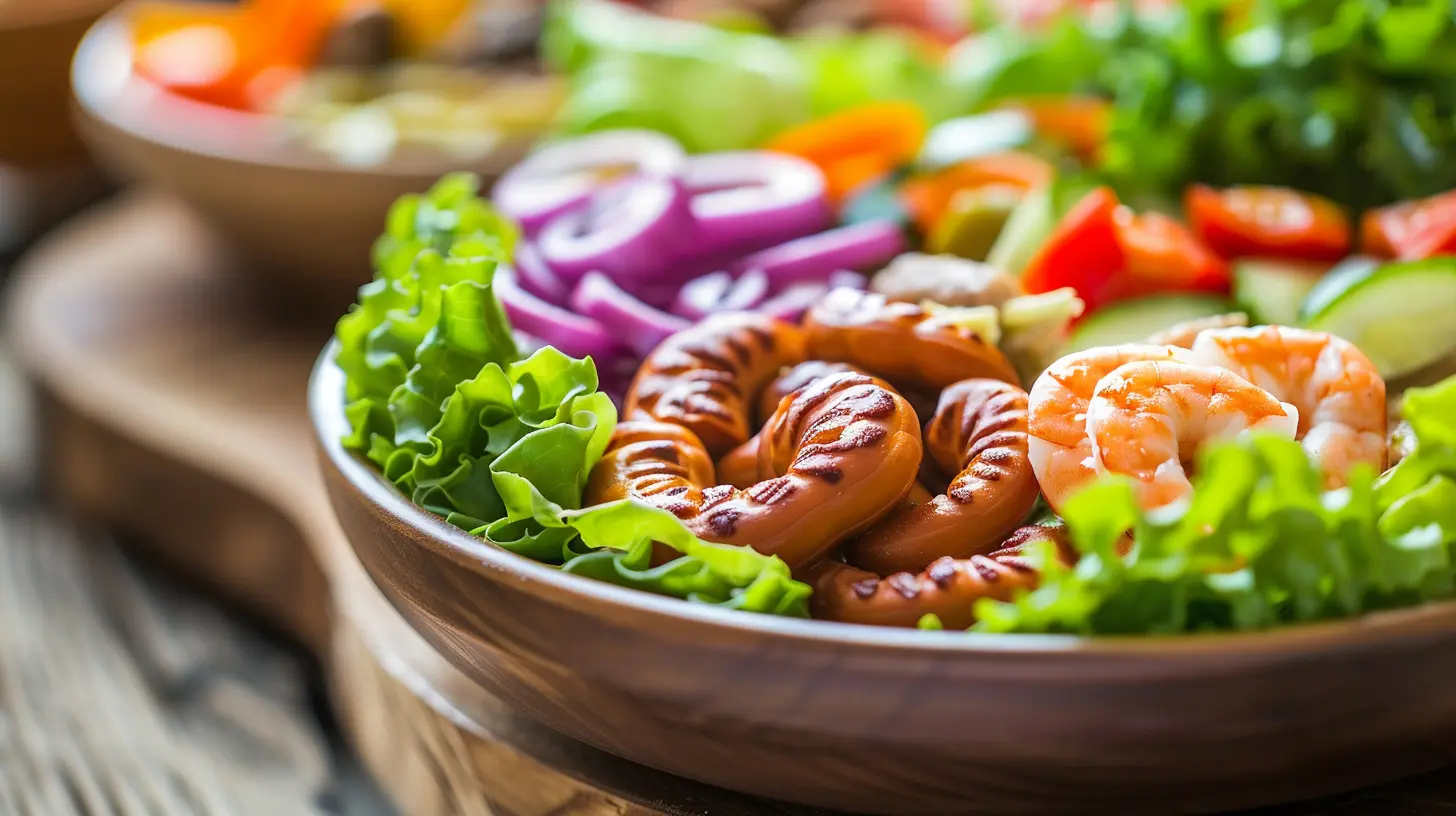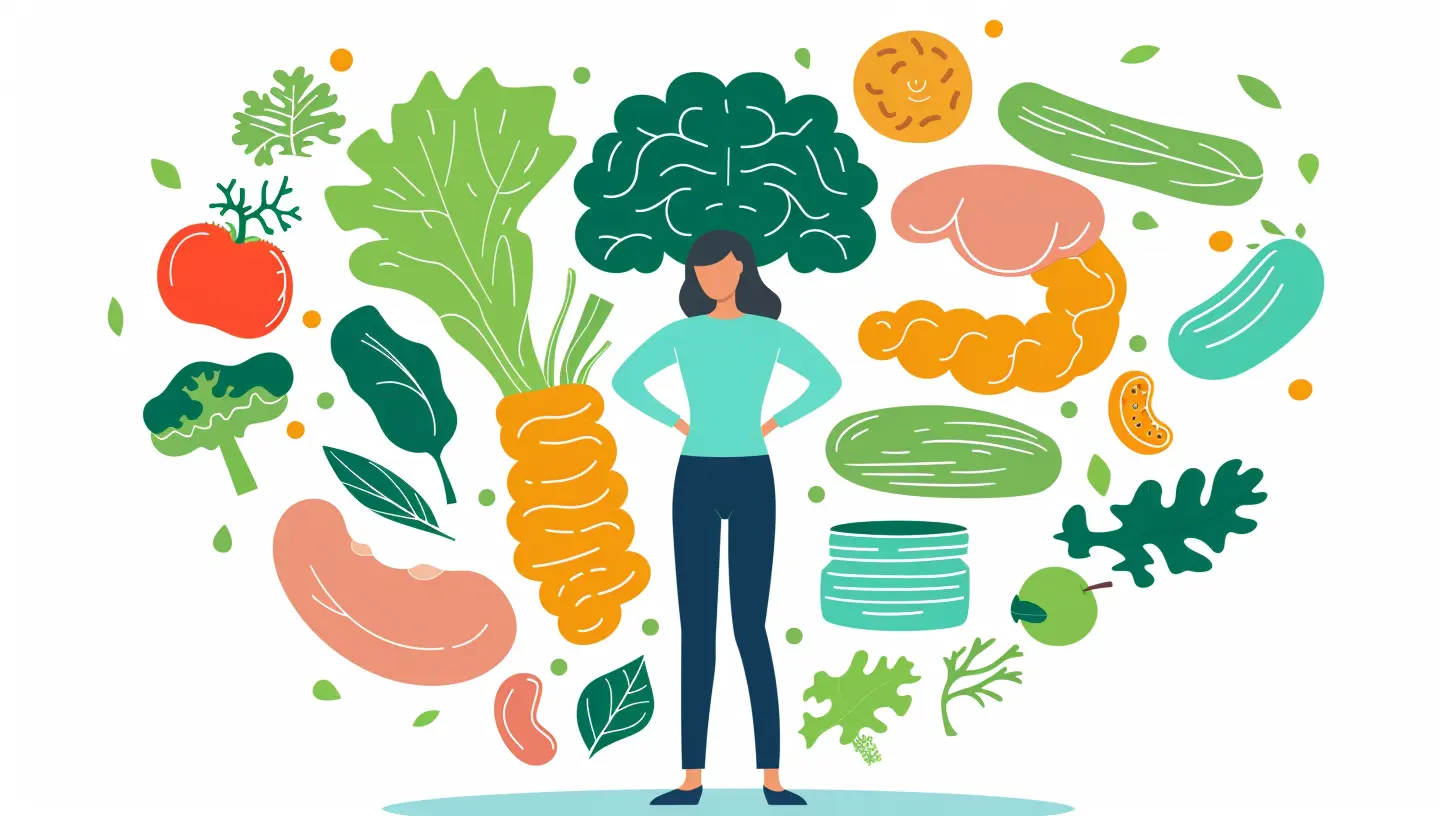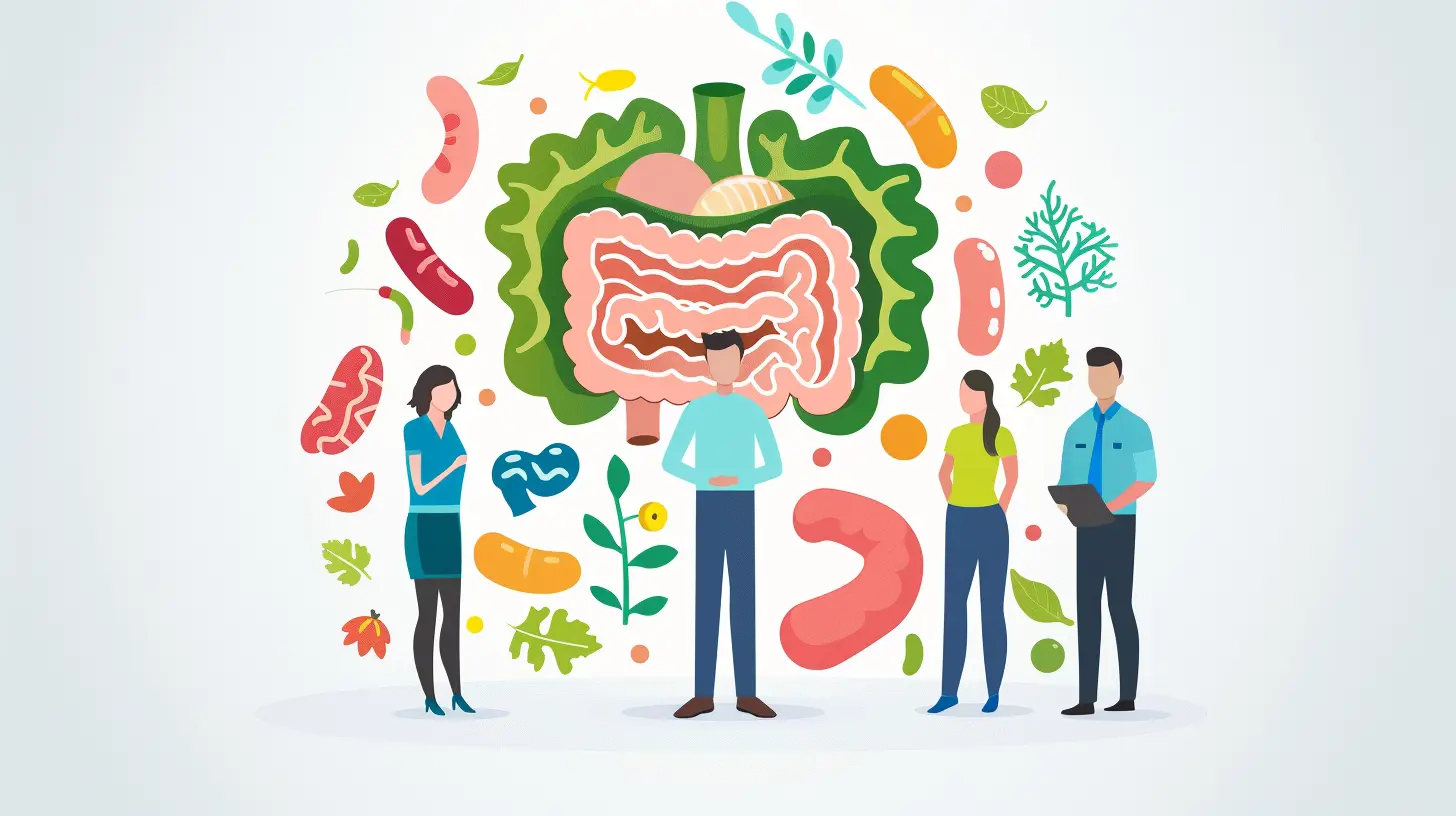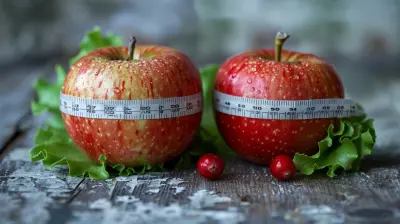Small Steps to Improving Gut Health with Everyday Habits
17 August 2025
Let’s get one thing straight — your gut isn’t just the pit that grumbles before lunch. It’s your health powerhouse. It’s where digestion, immunity, mood regulation, and even your skin health link arms and get things done. Yep, the gut is that powerful.
But here’s the kicker — you don’t need some fancy, overpriced detox cleanse or a med-school degree to take charge of your gut health. Small. Daily. Steps. That’s it. That’s the secret sauce.
In this article, we’re diving into practical, no-BS habits you can weave into your life starting today. Because good gut health isn’t about perfection. It’s about progress.

Why Gut Health Is a Big Freakin’ Deal
Before we jump into the how, let’s talk about the why. Your gut houses trillions (yes, TRILLIONS) of bacteria — a whole ecosystem known as the gut microbiome. Think of them as your internal roommates. Some bring the good vibes (think strong digestion, sharp brain function, boosted immunity). Others? Not so much.When your gut flora is balanced, life is good. But when the bad bacteria outnumber the good ones? Say hello to bloating, fatigue, mood swings, frequent colds, and even skin issues. Yikes.
So yeah — keeping the gut happy is kind of essential.
1. Start Your Day With Warm Lemon Water
Let’s ease into this, shall we? One of the simplest ways to prime your gut each morning is drinking warm lemon water. It’s like a gentle wake-up call for your digestive system.Why it works: Lemon water stimulates the production of stomach acid and bile, which are essential for breaking down food and absorbing nutrients. Plus, the hydration jumpstarts your metabolism and helps flush out toxins.
How to do it: Squeeze half a lemon into a glass of warm water and drink it first thing — before coffee, emails, or Insta scrolling.
2. Eat More Fermented Foods (Your Gut Will Thank You)
Fermented foods are basically probiotics in disguise. They’re loaded with live bacteria that replenish your gut with the good guys.Gut-friendly stars include:
- Yogurt (with live cultures)
- Kefir
- Sauerkraut
- Kimchi
- Miso
- Kombucha
Not into the sour and funky flavors yet? Start with small servings. Your taste buds — and gut — will adapt over time.
3. Fiber: The Underrated Gut Hero
Seriously, fiber is like the unsung MVP of gut health. Why? Because your gut bacteria literally feed off it.There are two types:
- Soluble fiber (found in oats, beans, apples) – forms a gel and slows digestion.
- Insoluble fiber (found in whole grains, veggies) – adds bulk to poop and keeps things moving.
Bottom line? Fiber keeps your gut rhythm smooth and helps fuel a healthy microbiome. Aim for 25-30 grams a day. That’s not as hard as it sounds — a handful of berries here, a scoop of beans there, and you’re golden.
4. Cut the Crap — Processed Foods, That Is
We’ve all been there. That 2 PM vending machine whisper or late-night chip dive.But here’s the brutal truth: ultra-processed foods wreck your gut. They’re loaded with sugar, artificial sweeteners, and additives that mess up your microbiome.
Your gut bacteria love real food. So instead of reaching for sugary snacks or microwave meals, try:
- Fresh fruits and veggies
- Whole grains
- Legumes and nuts
- Lean proteins
Not perfect every day? Who is? The goal is to crowd out the junk, not obsess over every bite.
5. Hydrate Like It’s Your Job
Water isn’t just there to keep your skin glowing. Your gut needs it to help break down food and absorb nutrients. And get this — dehydration is one of the leading (and most avoidable) causes of constipation.Tips to up your water game:
- Keep a reusable bottle nearby — like your hydration buddy.
- Infuse it with berries or mint if plain water bores you.
- Set reminders if you tend to forget.
Your gut cells are thirsty. Don’t leave them hanging.
6. Move Your Body, Move Your Bowel
You didn’t think we’d skip exercise, did you?Physical activity is directly linked to better digestion and a more diverse gut microbiome. You don’t have to live in the gym — even a 20-minute walk can work wonders.
Bonus: Movement helps regulate stress (more on that in a sec), which is clutch for gut health.
Try to:
- Get up and stretch every hour
- Take short walking breaks after meals
- Dance like a maniac in your kitchen — it counts!
7. Stress Less (Seriously, It Wrecks Your Gut)
Here’s a not-so-fun fact: Your brain and your gut talk to each other all the time. That’s why gut health and mental health are deeply intertwined.Chronic stress messes with your digestion, weakens your gut barrier, and even shifts your gut bacteria balance. No bueno.
Combat stress with:
- Deep breathing (inhale 4, hold 4, exhale 4)
- Meditation or mindfulness apps
- Quality sleep (seriously, prioritize it)
- Journaling or gratitude lists
- Laughing more — yep, it helps
Stress isn’t going away, but you can change how your gut responds to it.
8. Get Friendly With Probiotics and Prebiotics
Let’s break it down:- Probiotics = the live, beneficial bacteria
- Prebiotics = the food those bacteria love
You need both for a thriving gut ecosystem.
Easy sources of probiotics: Yogurt, kefir, sauerkraut, kimchi
Easy sources of prebiotics: Garlic, onions, bananas, oats, asparagus
You can also take supplements, but food is always the best starting point. Think of it like a garden: probiotics are the seeds, and prebiotics are the fertilizer.
9. Chew Slowly. No, Slower Than That.
You’re not a vacuum cleaner. Chewing your food thoroughly is step one of digestion — and it’s often skipped entirely.Rushing through meals?
- Makes your digestive system work harder
- Can cause bloating and indigestion
- Prevents you from recognizing fullness cues
Pro tip: Put your fork down between bites. Listen to your body. And please — don’t multitask while eating. Instagram can wait.
10. Cut Back on Antibiotics (Unless Absolutely Necessary)
Antibiotics are life-saving, no doubt. But they also wipe out all bacteria — good and bad.So unless your doctor insists, try to avoid unnecessary antibiotics. And if you do need them, follow up with a gut-healing protocol: fermented foods, probiotics, hydration, and rest.
It’s like rebuilding after a tornado — your gut needs TLC.
11. Sleep Like Your Gut Depends on It (Because It Does)
Ever notice your digestion acting up after a crappy night’s sleep? That’s no coincidence.Poor sleep disrupts your circadian rhythm, and your gut bacteria rely on that rhythm to function. Plus, inadequate rest increases inflammation — the silent gut saboteur.
Aim for 7–9 hours of sleep. Create a nighttime wind-down ritual. And keep screens out of your bed like the pests they are.
12. Ditch the All-or-Nothing Mentality
Let’s be real: you’re not going to eat kale and kimchi every meal, meditate at sunrise, and get 10,000 steps a day perfectly.And that’s totally fine.
Gut health isn’t a one-size-fits-all sprint. It’s a slow dance. Be consistent, not perfect. Celebrate small wins. And if you mess up? Brush it off and get back on track. Your gut is resilient — but it needs your help.
Final Thoughts: Your Gut, Your Rules
Improving your gut health doesn’t have to be expensive, extreme, or exhausting. It’s the little changes — the lemon water, the fiber, the deep breaths — that add up.Think of it like building a gut-friendly toolkit. Every habit is a tool. Use them, mix them, adapt them to your life.
Start small. Stay consistent. Trust your gut (literally and figuratively).
You’ve got this.
all images in this post were generated using AI tools
Category:
Healthy HabitsAuthor:

Sophia Wyatt
Discussion
rate this article
1 comments
Raven Cannon
Small steps? Please! It's time to strut your way to gut glory! Let’s get real: your insides deserve a VIP makeover, not just baby steps!
August 24, 2025 at 3:00 AM

Sophia Wyatt
Absolutely! While big changes can be exciting, small steps make lasting improvements. Every little habit counts toward a healthier gut!


